Inside the secret Marvel Comics project by Tom King that inspired Disney Plus' Loki (and almost made Loki US President)
How an unpublished Tom King comic inspired the hit Disney Plus show Loki
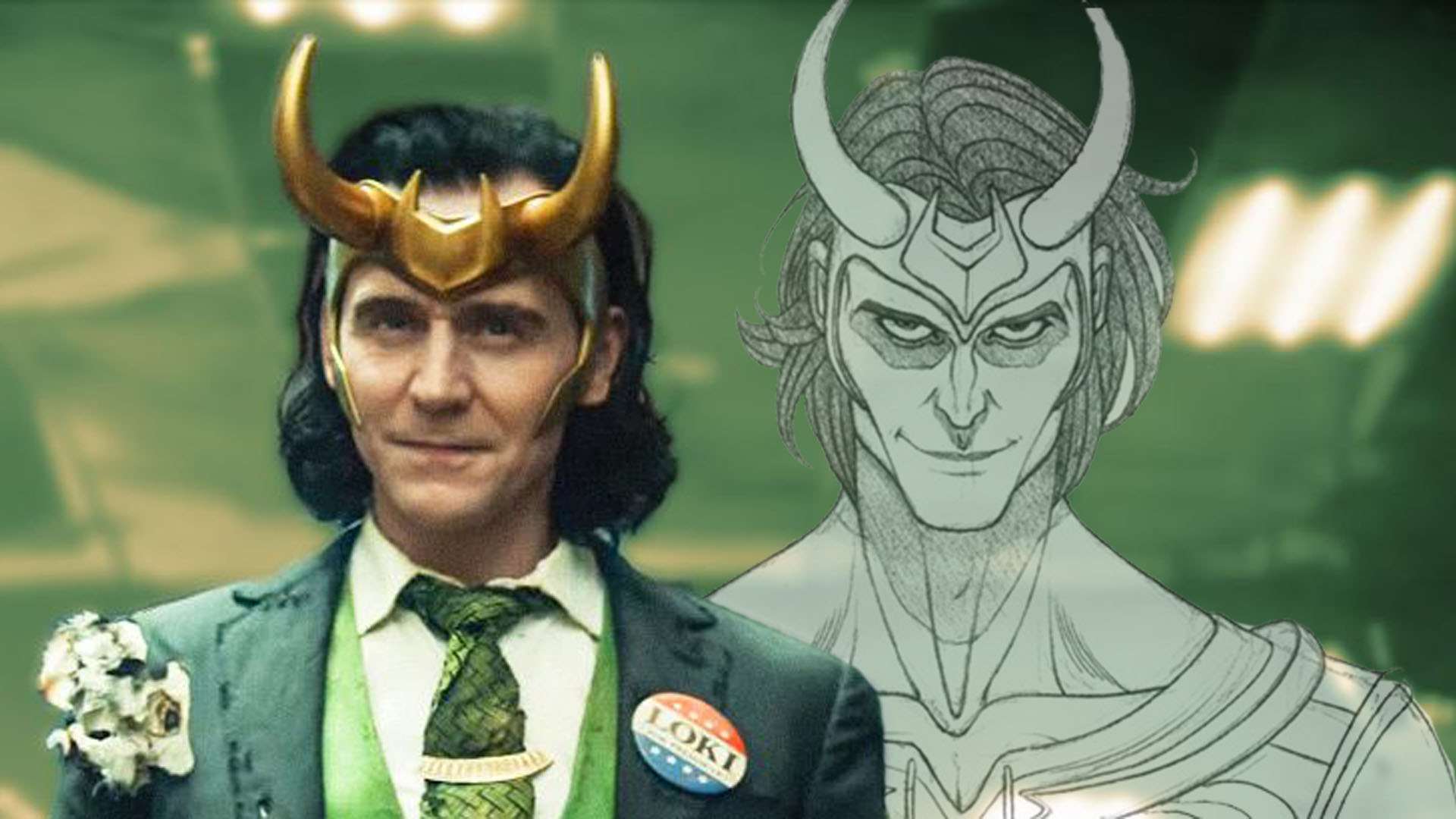
The penultimate episode of Disney Plus' Loki featured what could be perhaps the most chilling Loki variant to date: President Loki. Clothed in a full suit, tie, and a 'Loki for President' political button on his lapel, this version of Tom Hiddleston's character harkened back to a 2016 limited series called Vote Loki where Loki ran for President of the United States but lost.
But, like in the show, there's a timeline where something different happened - a variant to the Vote Loki series…. Or depending on how you look at it, Vote Loki was the variant to something else.
Loki for America.
Before Vote Loki by Christopher Hastings and Langdon Foss, there was another series in development at Marvel Comics: Loki for America by writer Tom King. Don't remember it? Don't beat yourself up, it was never published - or even announced. The only public reference that it existed is a little "Special Thanks to Tom King" credit in the pages of Vote Loki and Loki episode 5 - because in fact, Vote Loki was based on King's Loki for America pitch.
What was Loki for America?
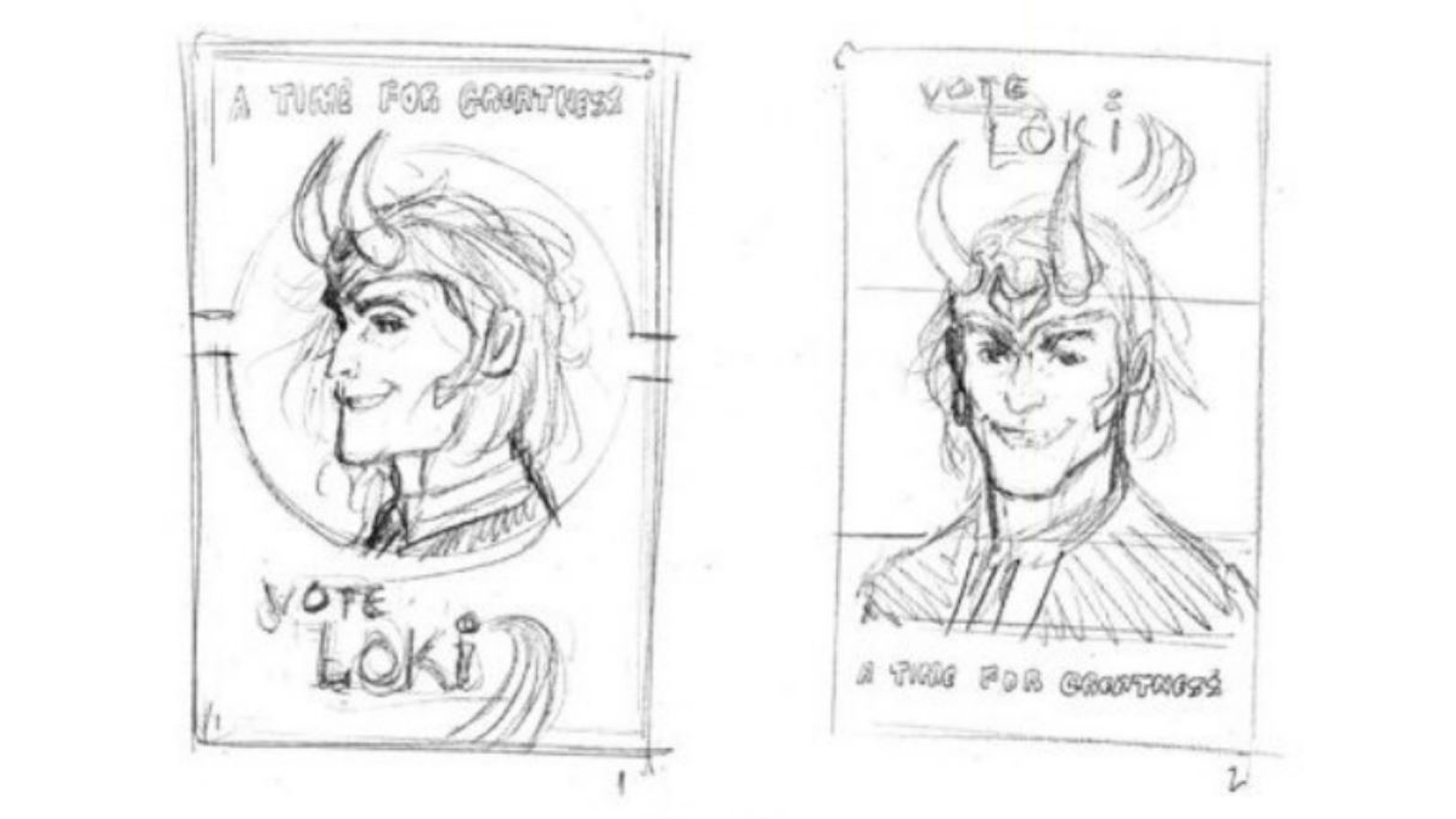
Loki for America was created by King in 2015 as the 2016 US Presidential race was getting into full swing. Like Vote Loki which would follow, Loki for America was about this classic Marvel villain running to be elected the head of the United States of America.
"Vote Loki was about what if someone truly evil - the literal god of lies - ran for US President, and was able to win," King tells Newsarama. "These are dated references, but at the time I framed it as a reality show where Game of Thrones meets House of Cards. It was a political thriller in a comic, the same way The Vision was domestic horror in a comic."
Let's back that up. King says "and was able to win."
Get the best comic news, insights, opinions, analysis and more!
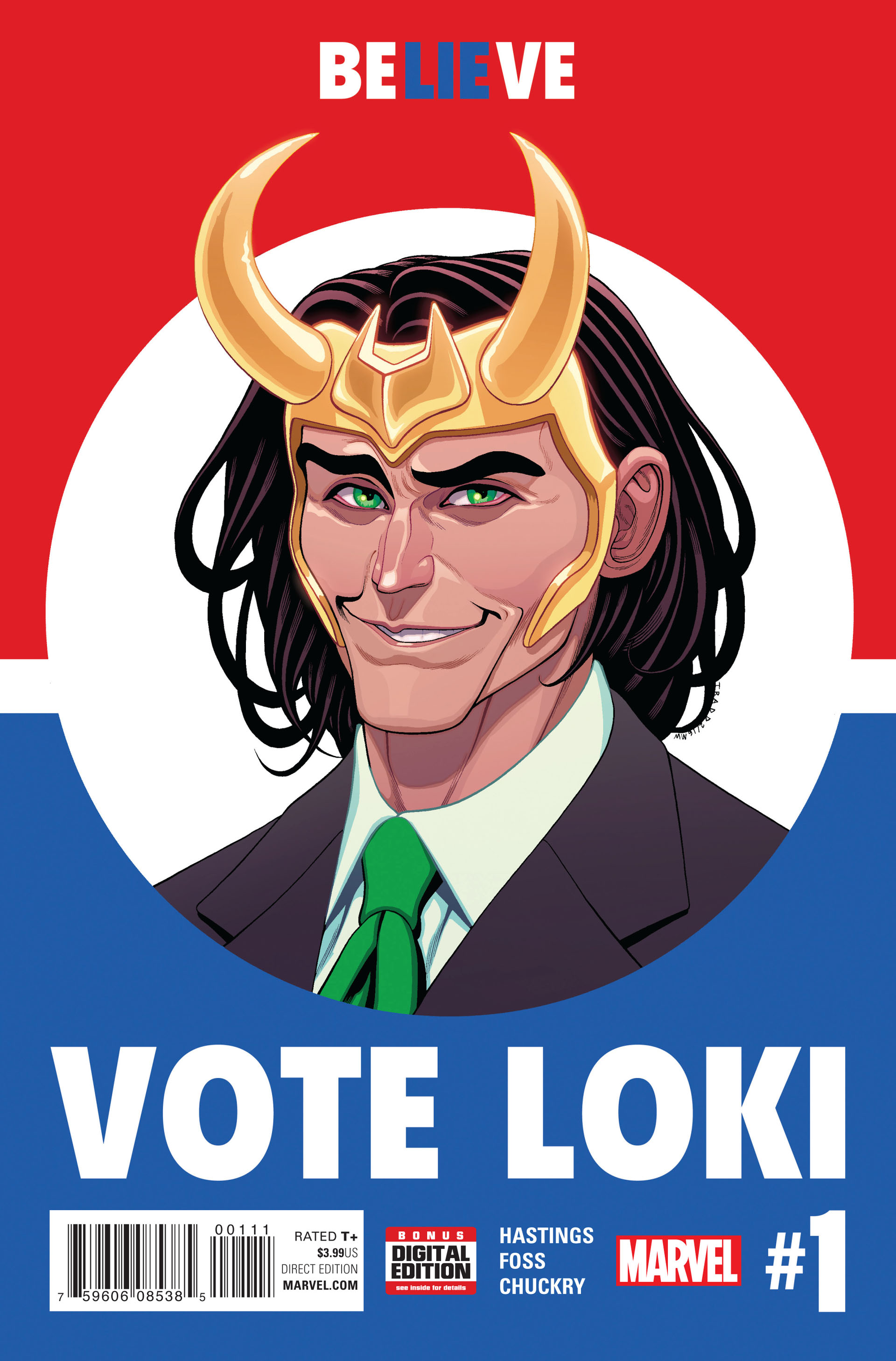
You don't remember Loki becoming President of the United States in Marvel Comics, do you? It didn't happen in the published Vote Loki series, but that was the plan that Tom King and Marvel had in mind for 2016 - the same year Donald Trump became the real-life US President.
When King, who lives in the Washington, DC area, first pitched the idea for Loki for America to Marvel, Trump hadn't yet become a seriously considered candidate - and hadn't even won the Republication nomination. What would've been this bit of weird synchronicity was something that King or Marvel couldn't even begin to fathom could've happened.
"I joke with people outside of comics about this. I originally pitched this at the 2015 New York Comic Con, as [Marvel Comics editor] Wil Moss and I were walking around," King said.
To frame this, this was after Donald Trump had announced he was running for president but months before the Republican primaries.
"As I told Wil, it's 'what if a guy who didn't have the best interests of America in mind ran for President?'" says the writer. "I mentioned Trump at the time, but Wil looked at me and said 'Trump's not going to win' and then asked more about the book. Nobody thought he was going to win. I agreed with Wil."
Although Trump has had a decades-long relationship with Marvel Entertainment, and its company CEO/chairman Isaac 'Ike' Perlmutter was a heavy supporter of Trump (and later worked in his administration), the idea Trump could win the highest office in the land wasn't imaginable - even by people who imagine for a living.
"It was so beyond the imagination of even our comic book culture. We can believe a huge purple man can eat planets, but two comic book professionals could not image Donald Trump as US President," says King. "It was beyond the horizon, even for people whose jobs it is to think multiverses ahead."
At the time, King was midway through his run on The Vision but hadn't become the 'Tom King' people see as a major comics writer after the success of The Vision… not to mention his run on Batman.
"My version would have been 12 issues, like The Vision and a lot of what I've done since," says King. "This was pitched to come out around the time the War of the Realms event was happening, with all of the dark elves kind of coming to America because Asgard was destroyed. Loki was uniquely situated to be able to 'get' these immigrants."
And before you ask, King says he would explain how Loki, who as a non-US-born citizen, would legally be able to run for US President. He's saving that though, just in case.
"Loki for America would have been about the ups and down of his campaign, even as superheroes speak out against him," King says. "The Fantastic Four, for instance, would've said 'you can't vote for this guy!' and Loki would come back with 'Well, why would you believe the Fantastic Four? They stole a rocket ship'... twisting everything to make it his truth."
Political satire in Marvel Comics with Loki For America
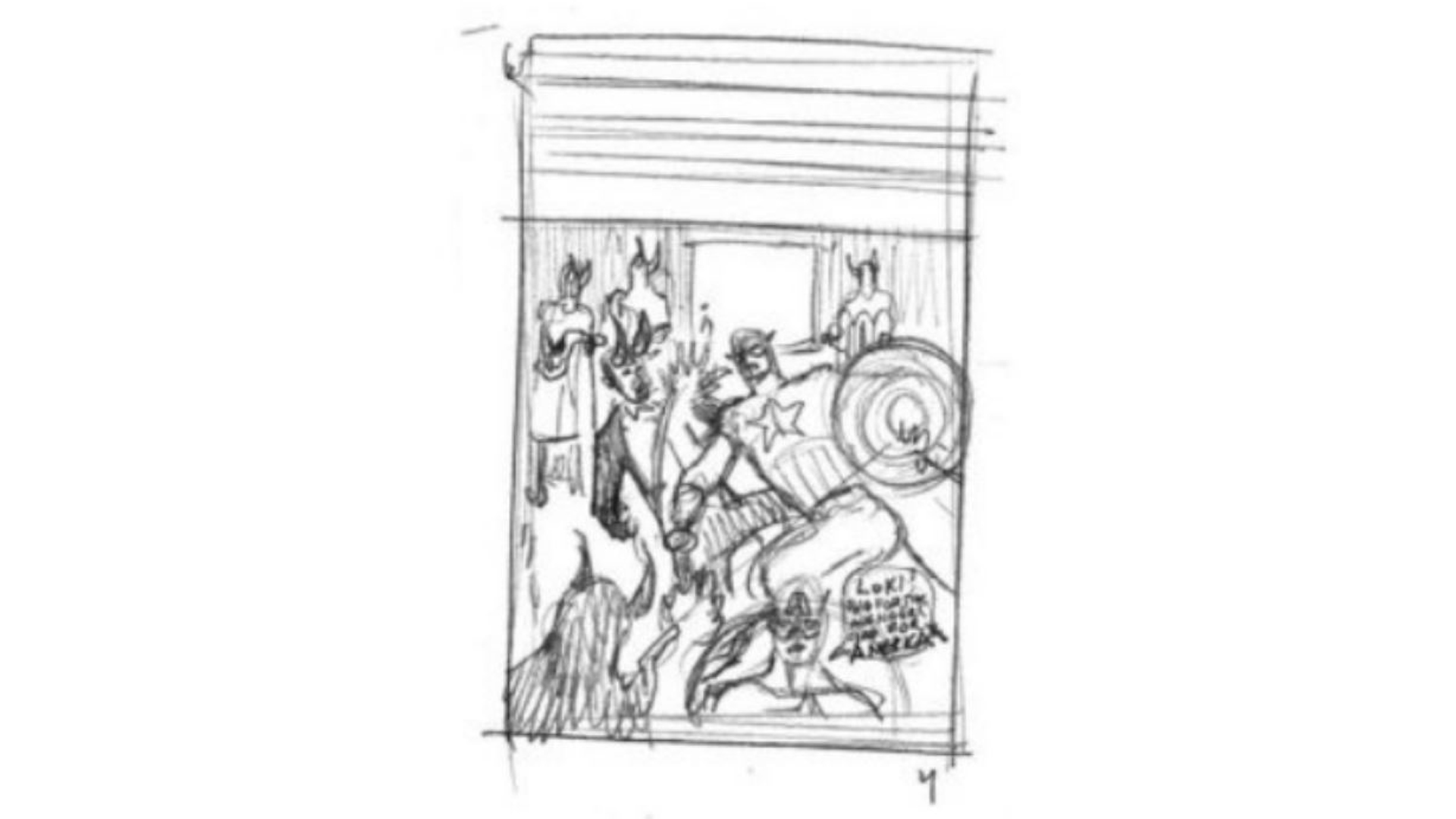
Given how subversive The Vision was in its undercurrents, the concept for Loki for America (especially knowing he'll win) seems ripe for a very public kind of political satire. That was the intent according to King, owing to the comics writers who'd come before him.
"That's a fault of my writing. I write best when I write subversively," King says. "My best foot forward is putting superheroes in a position that connects them with their humanity."
King frames himself as one of the last people in a generation of comics writers that grew up with Watchmen as a "keystone" - nothing Brian Michael Bendis, Mark Millar, Brian K Vaughan, and Brad Meltzer as also part of this group.
"It's always seemed as though the goal was to do a Watchmen, a Dark Knight Returns; something that embraces the absurdities of the medium to transcend the medium."
"My stupid confidence all came out of that," King laughs.
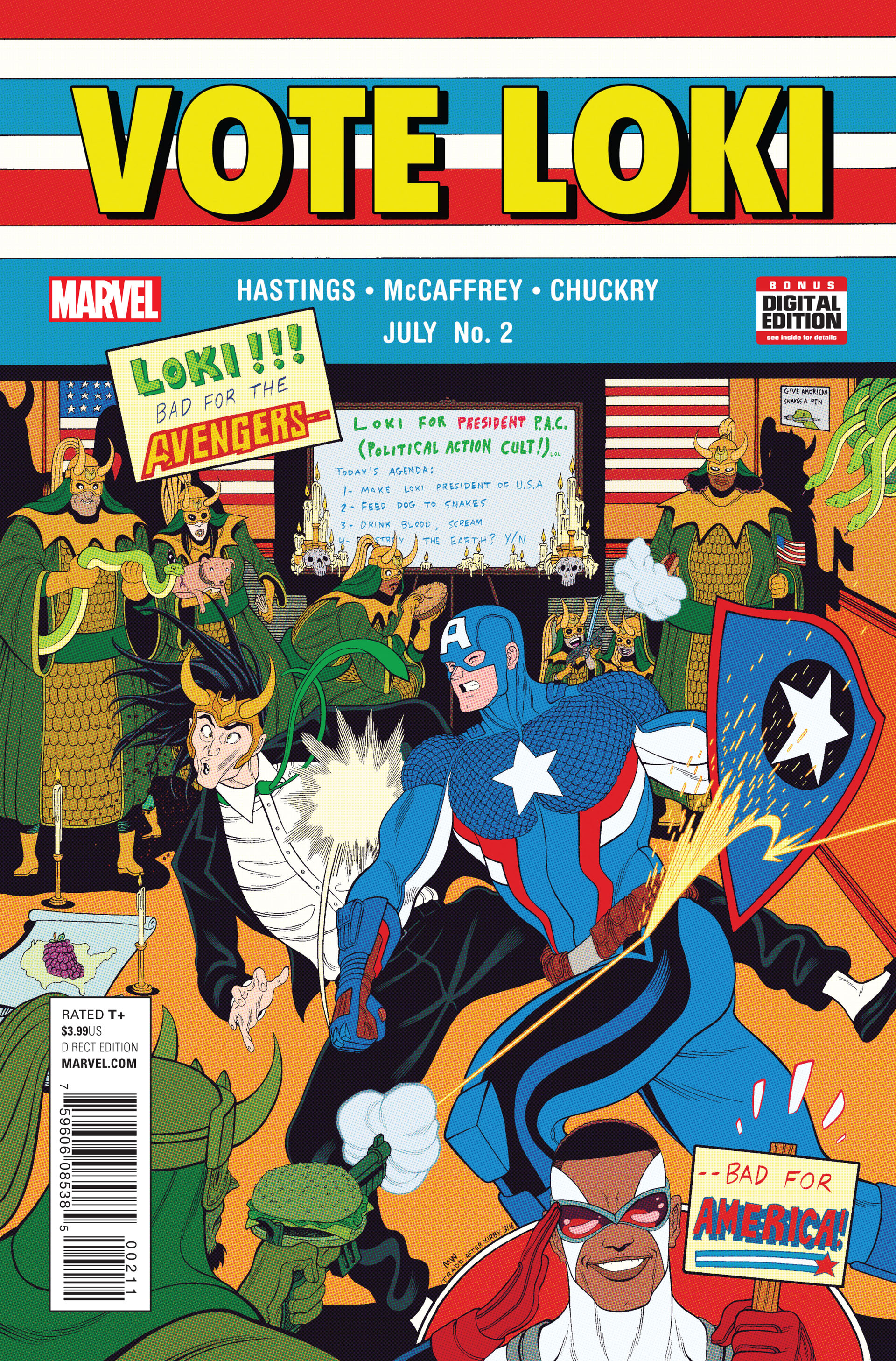
"The best way I can put it is this: Marvel became Marvel because one day Stan Lee just said 'fuck it' and started writing for himself," King says. "He'd been writing for 20 years, was about to turn 40, and was told to write superheroes again. He talked to his wife and the question became 'What if I just write what I want to write?'"
"That's a beautiful origin story, especially when you combine that with Jack Kirby."
King reveals that The Vision came out of a similar sense of last-ditch home-run-hitting, as at the time he was thinking about quitting comics.
"Omega Men had just been canceled, and there were all sorts of threats that Grayson would end prematurely due to continuity stuff," King says, referring to two DC projects of his at the time. "I didn't know if I wanted to be in comics, so The Vision became me saying to myself 'If I'm not going to be here long, I should do something crazy before I go.'"
King attributes Marvel's willingness to publish The Vision - and aim to, with Loki for America - to Marvel editor Wil Moss.
"And that's where Wil's greatness comes in. Wil was always there - just quietly very supportive," says King. "He never questioned, never asked for more action scenes or crossovers. I wanted to make the best book possible, and I got super lucky - he created an environment to make it possible."
Even to the point of successfully deflecting "pushback" from Marvel's executive editor Tom Brevoort, according to King.
How Loki would've become US President
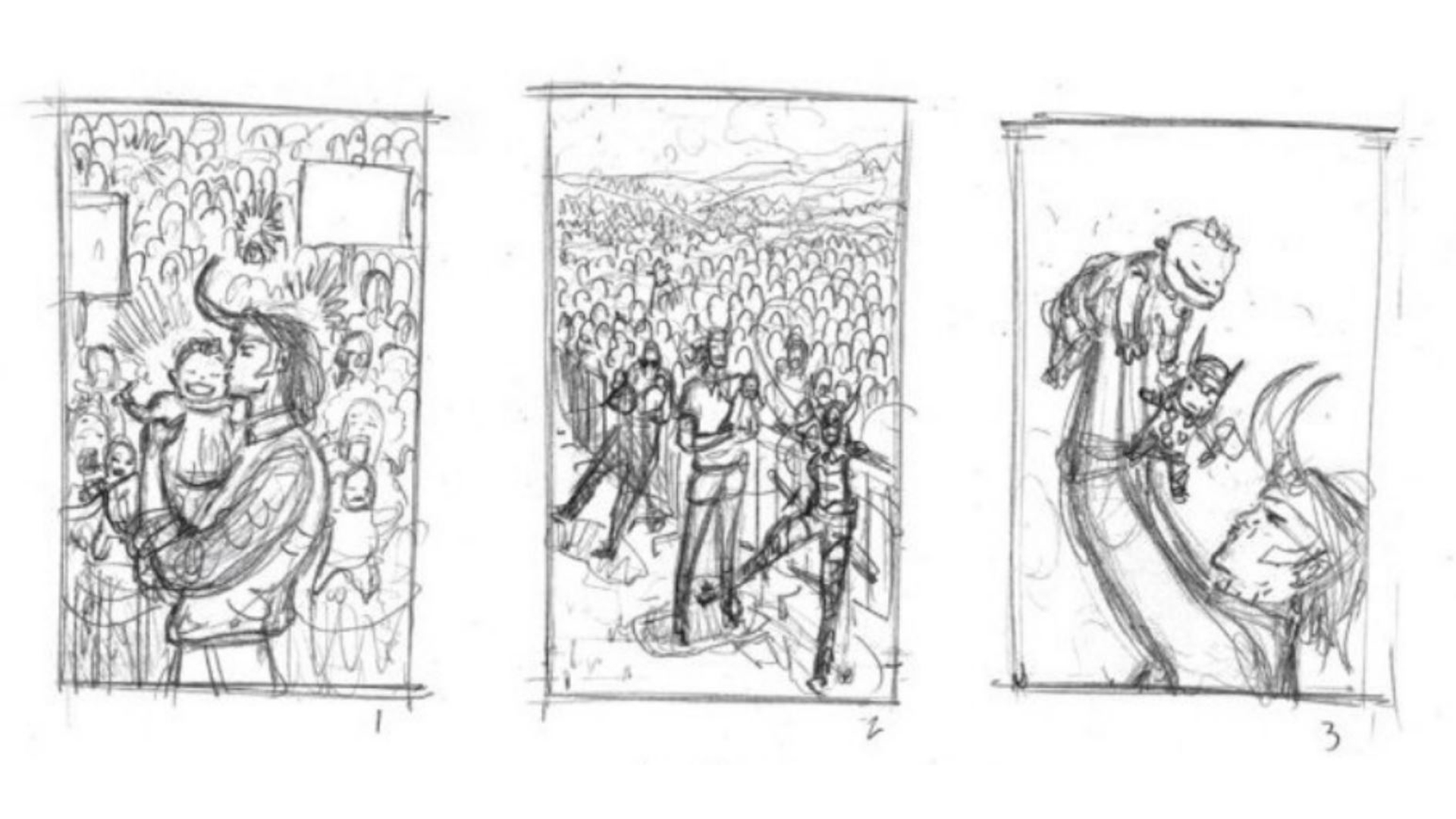
So how would Loki have become President of the United States in Marvel Comics? It would've all actually been sewn up in the first pages of the first issue.
"Mostly what I remember is the cold open. Loki for America was going to begin with the day of the election, and the Democratic party had conceded the election and Loki had officially won the US Presidency," says King. "He's walking on a stage while people chant 'President Loki! President Loki!'. His brother Thor is even there to congratulate him, but leans in while shaking his hand and whispers 'You're not worthy.'"
"Loki is shaken by that but makes his way up to the podium. As he is about to talk, he's assassinated... shot dead," King continues. "Then a black page with the text 'One year earlier…'"
As this (and Loki for America) were never published, King ended up using this idea of a political assassination in the current DC series Rorschach - but with a much different setting.
How Loki for America got axed
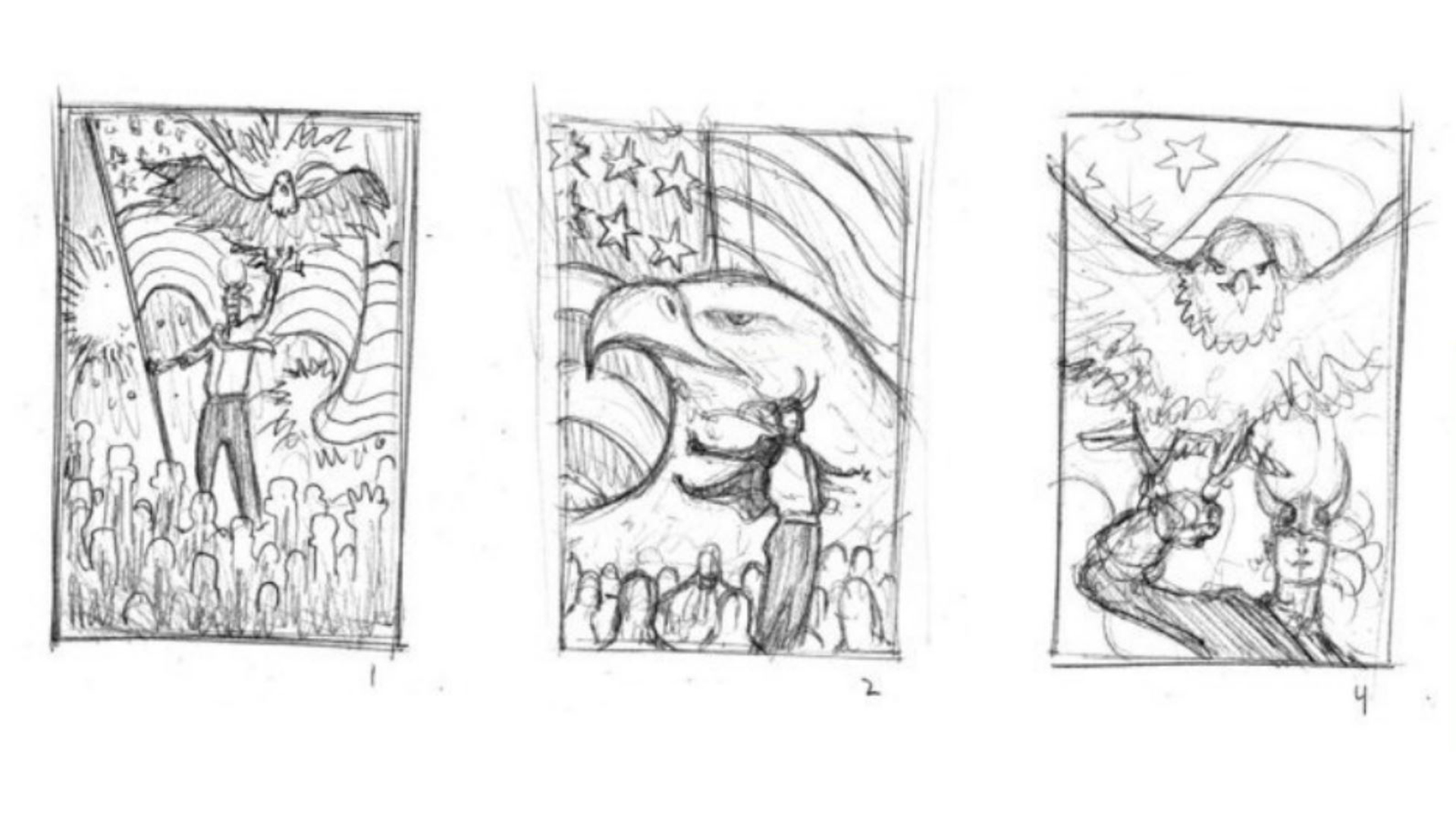
King's Loki for America was tentatively approved by Marvel in late 2015, and Tradd Moore was in talks to draw the series. The Vision was performing well critically and commercially, so things were looking good for the project - but then King got an offer he couldn't refuse.
"I remember very specifically going into [then-DC co-publisher] Dan DiDio's office. He was like 'Ok, we want you on Batman, but you have to sign an exclusive,'" King says. "I hadn't even finished The Vision yet."
According to King, his first thought was to tell DiDio 'No' because he enjoyed working on The Vision and considered its team - Gabriel Hernandez Walta, Michael Walsh, Jordie Bellaire, Clayton Cowles, and Wil Moss - "the perfect team."
"I wanted to do more of that - more of those kinds of stories," King says.
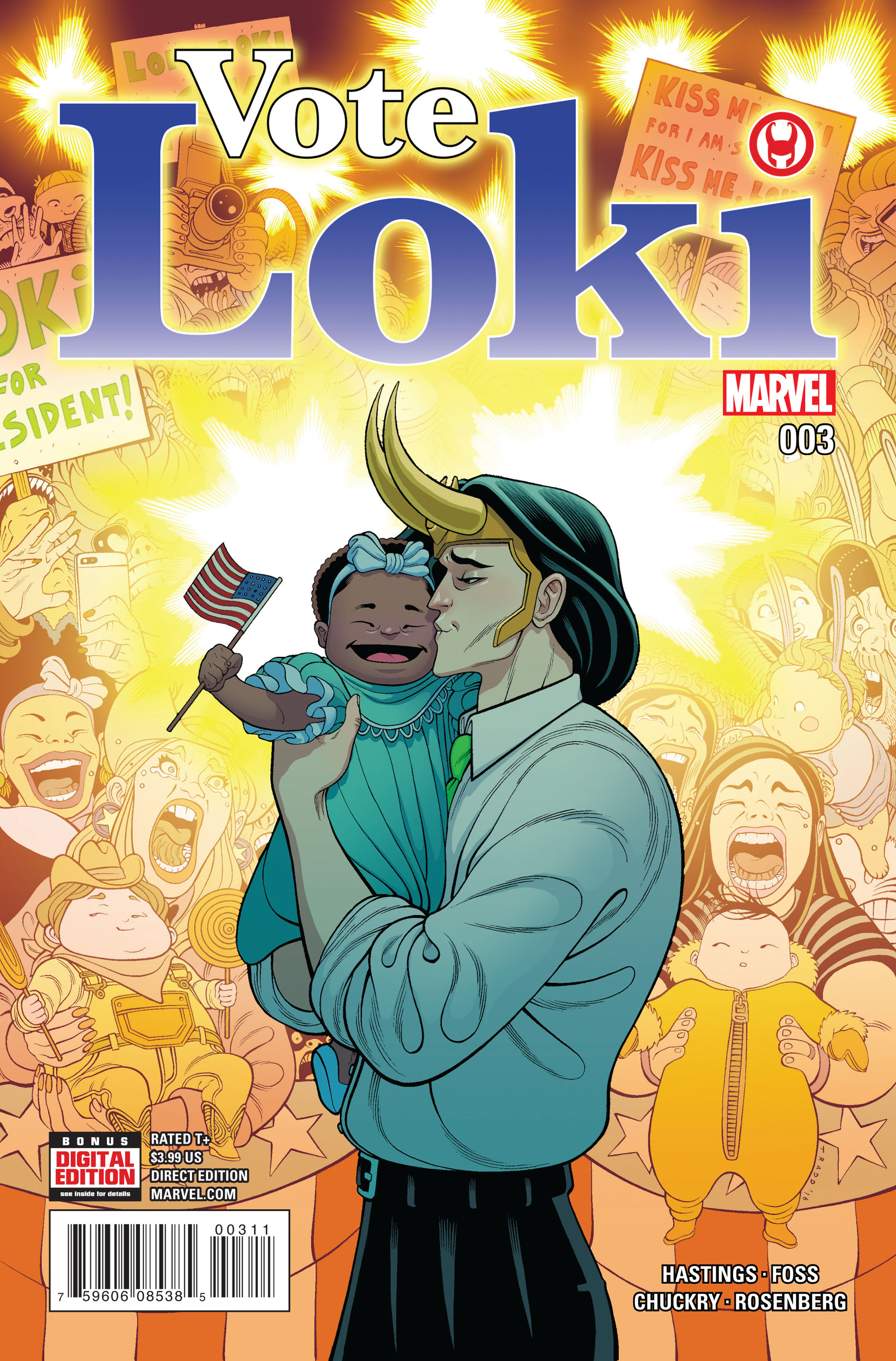
But DiDio's offer for the Batman writing gig wasn't just writing Batman - it was writing the 'Rebirth' era version of Batman, complete with a new #1. That wasn't lost on King.
"Dan was offering me Batman #1, which can change your life - and did change my life. There's only been three of those in the history of comics," King says. "But I remember going home and talking to a friend who owns a comic book store in Massachusetts, and telling him I didn't know what to do. I had this great idea for a new Marvel book, and I'm a Marvel zombie going way back.
"Then he said, "Dude, it's Batman."
King signed the DC exclusive contract and agreed to write Batman, but was able to work out a deal with DiDio to allow him to finish work on The Vision.
"When I broke the news to Wil, he was understanding," says King. "He came back a little later and told me that Marvel still loved the Loki for America idea, and would pay me some money if they could still go ahead with it with someone else. I said sure."
Looking at Vote Loki from the outside
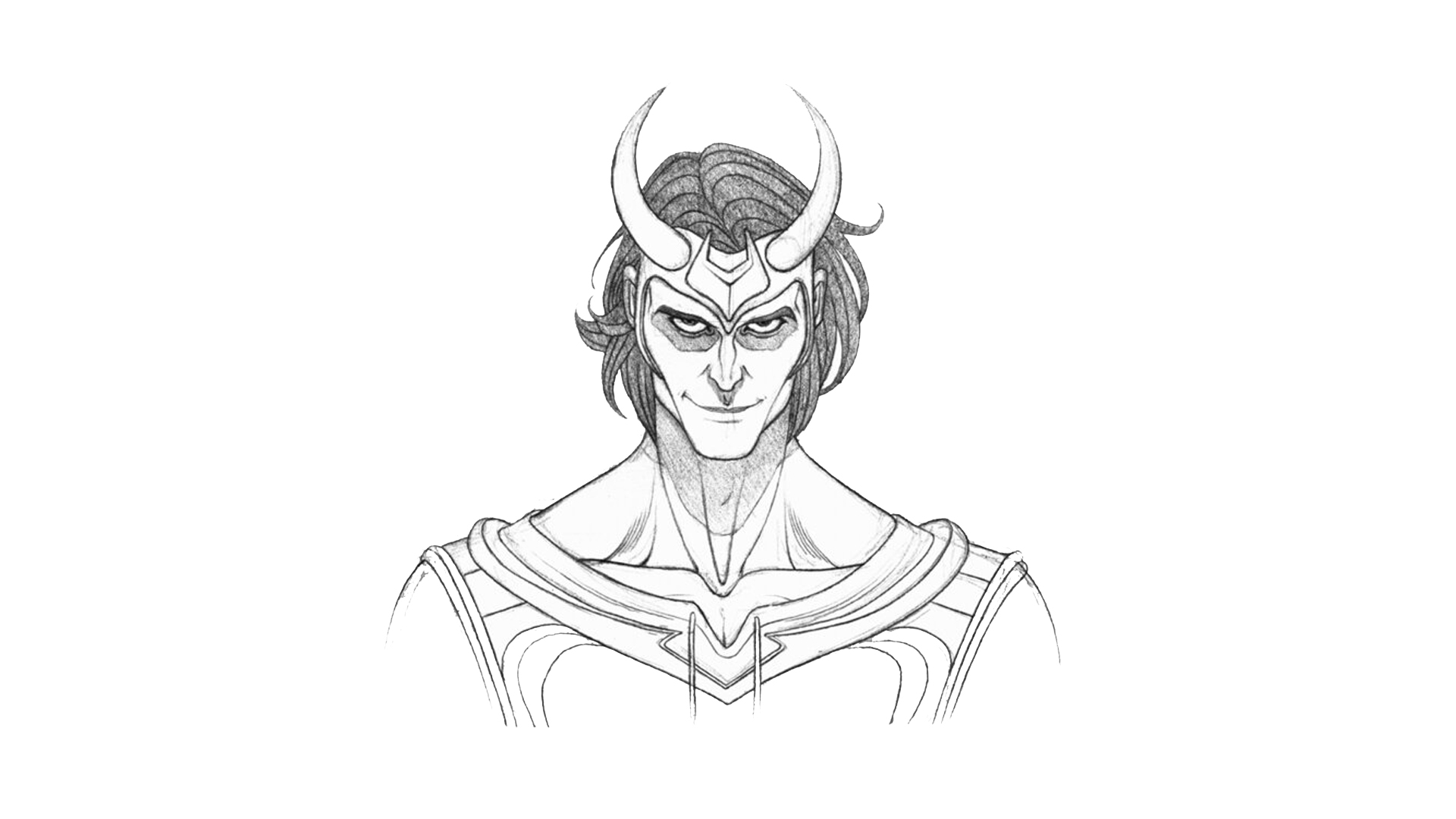
King finished The Vision, and then began an exclusive deal with DC that continues to this day. Moss and Marvel did follow through with Loki for America and it ultimately became Vote Loki. While King says he's never talked to the Vote Loki creators about the project, he did speak with a surprise party who was almost the one to write this series.
Enter Chip Zdarsky.
"Chip Zdarsky, who is super nice, was originally supposed to take over writing Loki for America. He reached out," King reveals. "'Tom, they gave me this book. I don't want your blessing, but wanted to talk to you as a pro would do.'
"Such a Canadian," King says with a laugh. "I told him 'Go for it! You're the perfect pick.'"
Ultimately Vote Loki was created by writer Christopher Hastings and artist Langdon Foss, with Tradd Moore drawing the covers instead of the interiors as originally discussed.
King tells Newsarama that he attempted to read it, but found the origins of it too raw for him to handle.
"I read the first two issues of Vote Loki, actually. I dipped in," says King. "But in that, I found I couldn't read it. I'm sure it was fantastic, but psychologically it was super hard. This is my own thing, but it was like looking down a path you considered but didn't ultimately take."
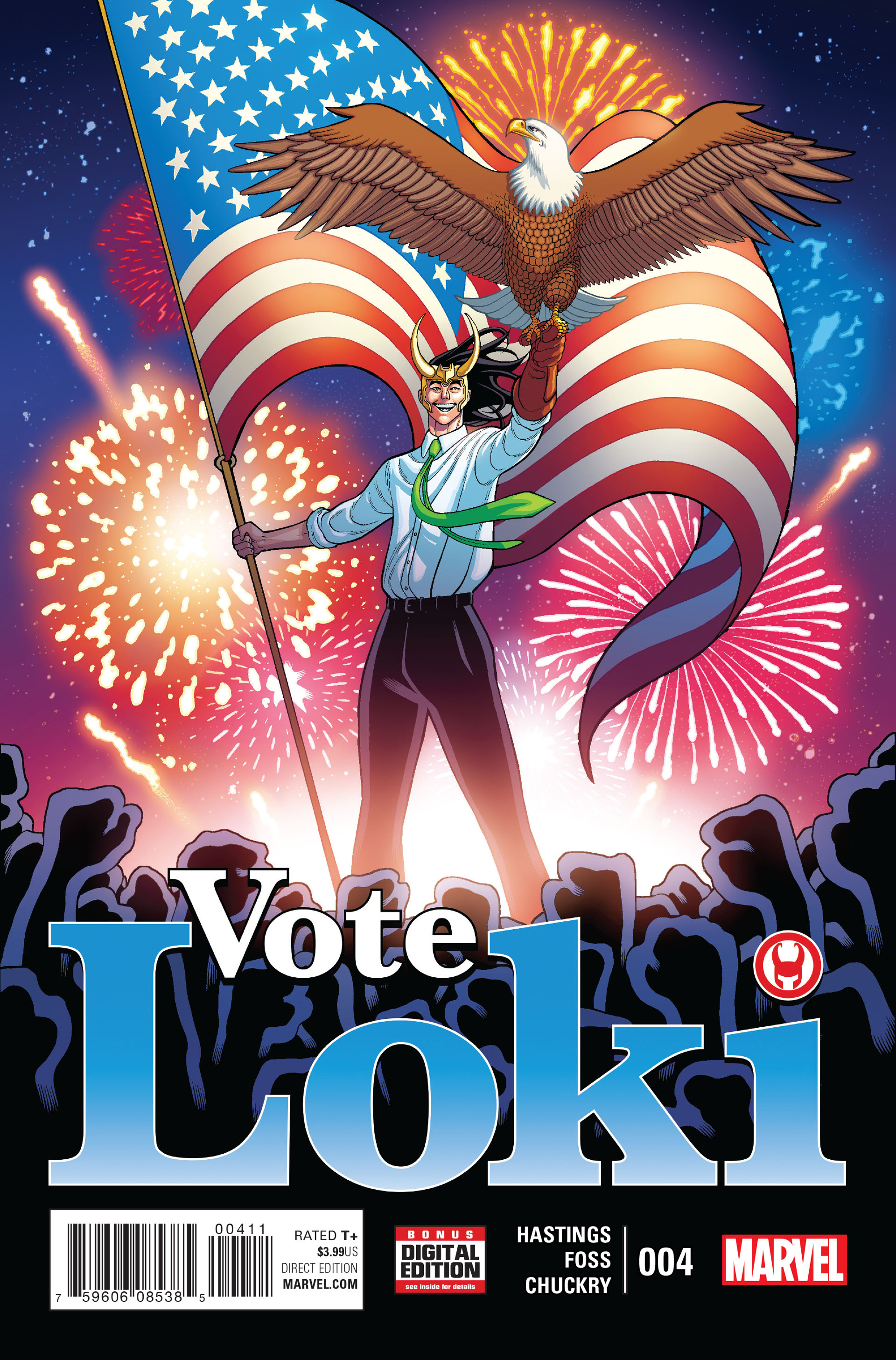
That being said, the President Loki as seen in Disney Plus' Loki is definitely based on his Vote Loki appearance - and by extension, King's idea for Loki for America. When asked before the show premiered if that would be "psychologically super hard" to view, King said no - and was going to watch it with his kids.
"Of course I'm going to watch Loki. I want to see Tom Hiddleston!" King says. "If there's some Vote Loki stuff in it, it'll be like Sparky in WandaVision."
Disney Plus' WandaVision was inspired heavily by the setting and tone of his The Vision series. King says he enjoyed it immensely - especially to be able to impress his kids.
"When WandaVision came out, I tied both of them down to watch it and explain what it's based on," says King. " They're impressed with everything, and for me, the whole reason you work is that response. Receiving that amazement back from your kids. Doing something that became something them and their friends talk about."
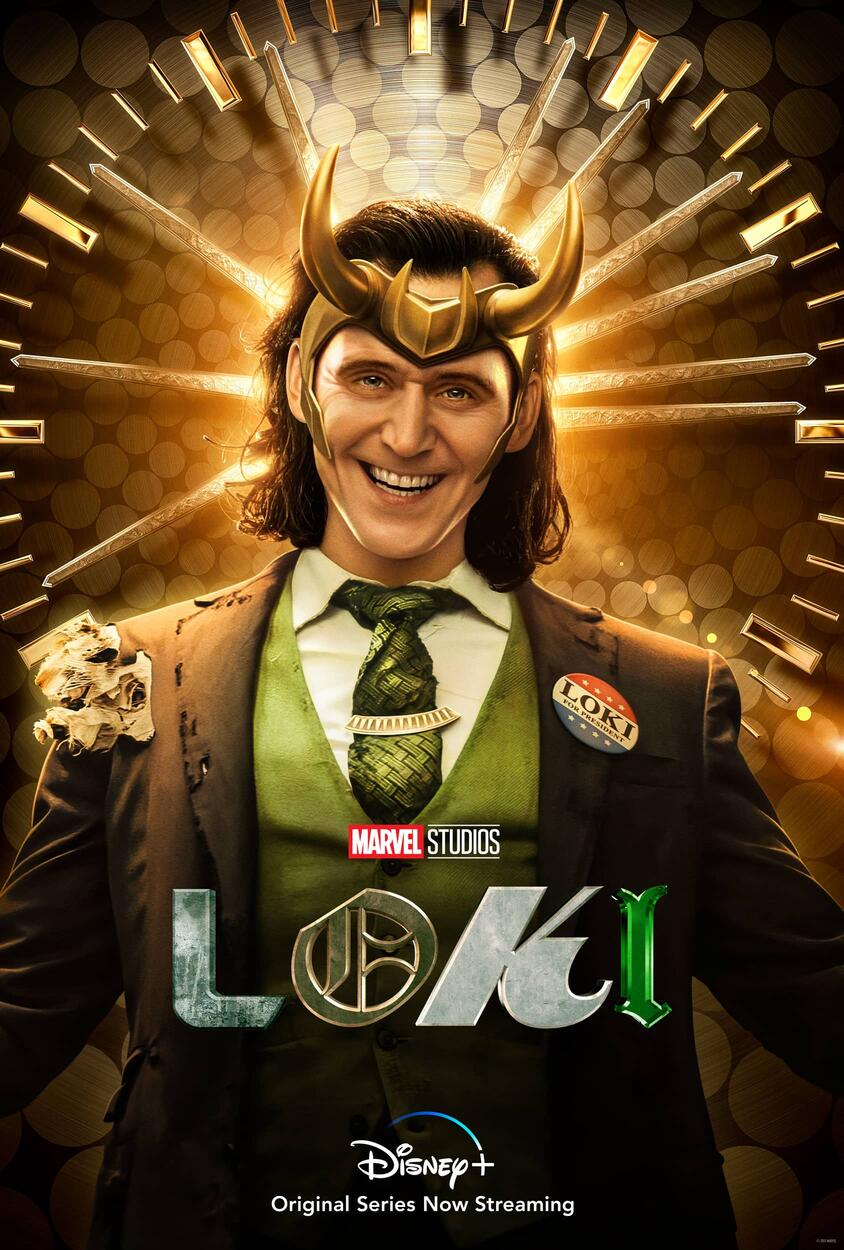
There's a key difference between WandaVision and Loki, as one was based on a comic project that was published and the other was something only a handful of people know about (until they read this article).
King first learned of President Loki's involvement in Disney Plus' Loki the same time we did - when he appeared in a trailer. The first thing he did was pull up the email from Marvel where he was asked to sign over the idea for someone else to develop. Tom King agreed to it at the time but finds it funny now at how his idea has grown.
How much did he get paid by Marvel for them to keep Loki for America, which later turned into Vote Loki and then was factored into the Disney Plus Loki series?
$300.
"It's funny because that's less than the money I got as a Marvel intern back in the '90s - and then I didn't even publish anything!" King says.
When it's all about the god of mischief Loki, it feels kind of apt.
Make sure you've read all the best Loki stories comics has to offer.
Chris Arrant covered comic book news for Newsarama from 2003 to 2022 (and as editor/senior editor from 2015 to 2022) and has also written for USA Today, Life, Entertainment Weekly, Publisher's Weekly, Marvel Entertainment, TOKYOPOP, AdHouse Books, Cartoon Brew, Bleeding Cool, Comic Shop News, and CBR. He is the author of the book Modern: Masters Cliff Chiang, co-authored Art of Spider-Man Classic, and contributed to Dark Horse/Bedside Press' anthology Pros and (Comic) Cons. He has acted as a judge for the Will Eisner Comic Industry Awards, the Harvey Awards, and the Stan Lee Awards. Chris is a member of the American Library Association's Graphic Novel & Comics Round Table. (He/him)



